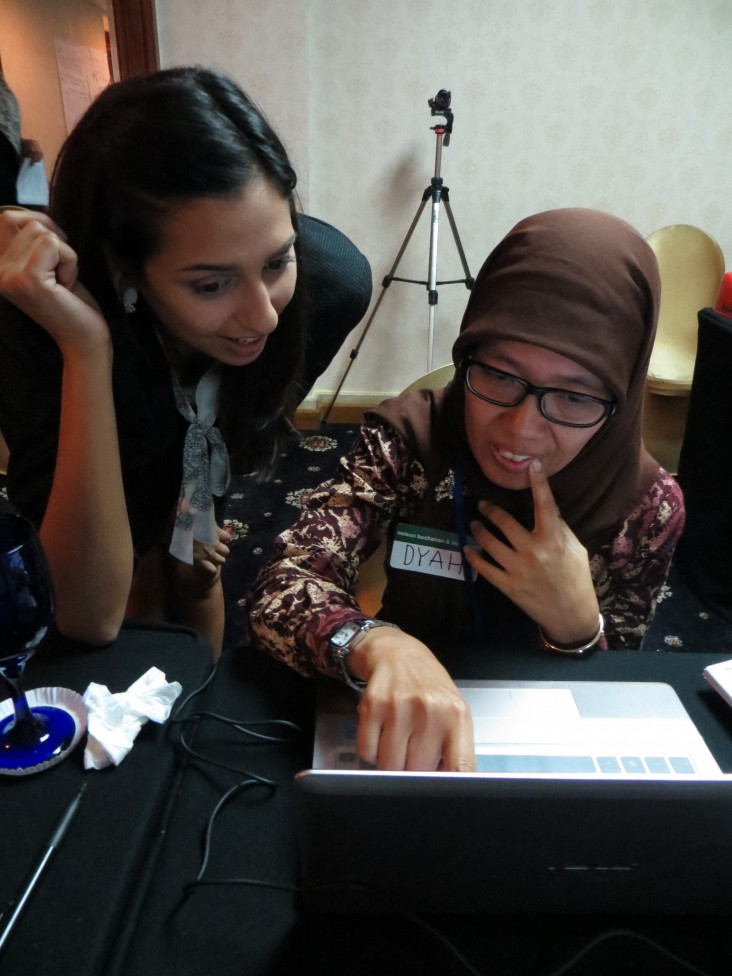
May 2015—There’s nothing dry about policy-making. Ask the scientists in the Association of Southeast Asian Nations (ASEAN).
One of these scientists is Dyah Marganingrum, a water management expert. In her native Indonesia, the urban poor are particularly at risk for not having enough clean water. According to Indonesia’s Ministry of National Development Planning, nearly 70 percent of urban households do not have access to a piped water supply and 30 percent do not have access to the most basic sanitation.
“I am very concerned about water treatment in Jakarta and other urban areas,” said Marganingrum. “Most household waste is sent directly to rivers or septic tanks. Poorly constructed septic tanks leak and the waste enters the groundwater supply.”
Marganingrum joined the USAID-supported ASEAN-U.S. Science and Technology Fellows Program in 2014 to promote better national water management policy in Indonesia. She has been working on water management issues since 1999, and believes that better access to safe water and sanitation are key to improving public health, the economy and the environment.
Some ASEAN member states experience seasonal water shortages and freshwater resources are threatened by rapidly rising demand from industrial activities, agricultural use and a growing population. Marganingrum’s work on national water management will help ASEAN countries overcome these challenges and access clean water.
As a science and technology fellow hosted by Indonesia’s Ministry of Research and Technology, Marganingrum works closely with the National Water Resources Council and drafts policy recommendations. One main contribution was her recommendation to the Indonesian Water Management Council to establish a team of experts to gather national data and information on water management. She also works to bring together community associations, the private sector and local and national government agencies to support innovation and science-based decision-making.
“I thank USAID for providing me the opportunity to work together with different water management agencies and promote the sustainable management of water to improve the quality of life and health for Indonesians,” said Marganingrum.
The ASEAN-U.S. Science and Technology Fellows Program taps into a talented pool of early career scientists in the region and injects innovative science-based policy-making into ministries within ASEAN member states. It will provide opportunities for interested scientists from ASEAN to impact policy decisions, learn about policy-making, and apply knowledge and skills to help their national governments pursue shared ASEAN goals and objectives.
LINKS
Follow @USAIDAsia, on Facebook, on Flickr, on YouTube







Comment
Make a general inquiry or suggest an improvement.